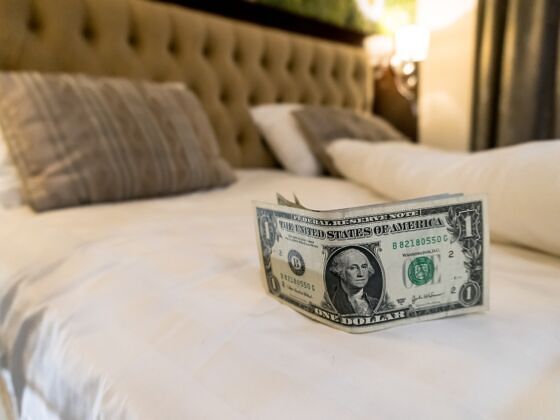In some hospitality arenas, tipping is rather straightforward. Everyone knows that 15 percent is customary at restaurants, and when your taxi or Uber drops you off without incident, throwing them a few bucks is pretty standard. But if you’ve ever thought about how to leave a tip at a hotel, you are not alone.
The rules of hotel tipping are ill-defined at best and nonexistent at worst. When you order room service, it’s a no-brainer to tip the person who delivers it. But what about the concierge? The bellhop? Front desk workers or valet? You don’t have a waiter at a continental breakfast, but what about the people who stock the buffet, and clean up? If you do decide to pull out the wallet, how much is enough, or too much?
No universal rules exist for tipping in hotels, but there are some best practices frequent travelers should probably know about. We spoke to experts from across the hospitality industry for the inside scoop. From which staff to tip to when, how much, and whether it really makes a difference, this is everything you should know about tipping at hotels.
